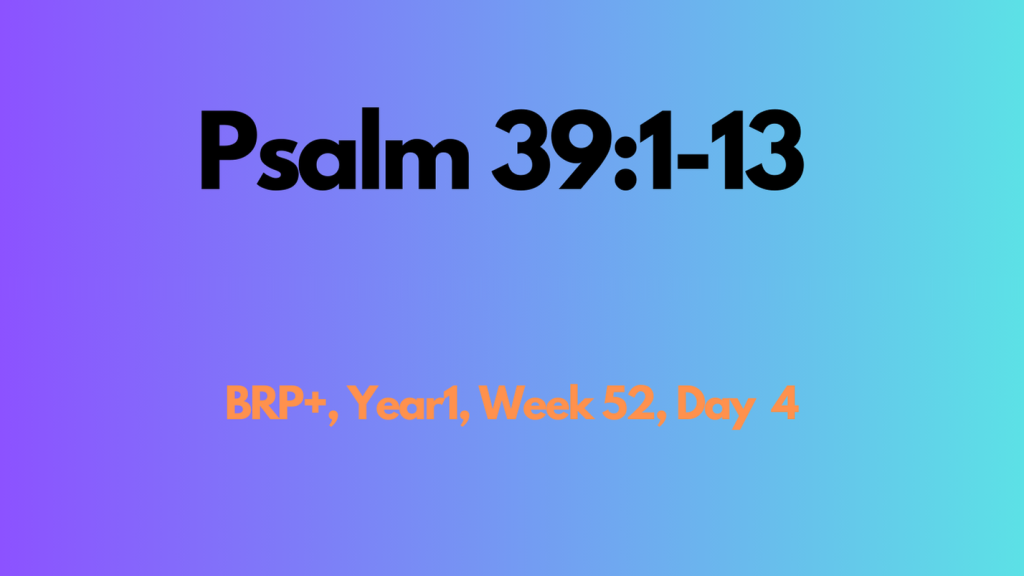Psalm 39:1-13
Q.1. What lesson had David learned about communication? Why did he hide his true feelings? Where did he focus his thoughts? Why is that important? – (Ps.39:1-6)
As James observed – the tongue is a fire, the very world of iniquity … and is set on fire by hell (Jms.3:6). David had learned the damage done by words, spoken in haste or under provocation, so he wrote – 1 … I will guard my ways that I may not sin with my tongue; I will guard my mouth as with a muzzle while the wicked are in my presence.” 2 I was mute and silent … (Ps.39:1-2). However, he experienced inner turmoil as he sought for clarity (Ps.39:2-3). Wisely, when ready to speak, he first brought his thoughts before the Lord – 4 “Lord, make me to know my end and the extent of my days; Let me know how transient I am. 5 “Behold, You have made my days as hand-breadths, and my lifetime as nothing in Your sight; Surely every man at his best is a mere breath. Selah. 6 “Surely every man walks about as a phantom; Surely they make strife for nothing; He amasses riches and does not know who will gather them (Ps.39:4-6). How differently our wrestling looks in the presence of the everlasting God. Not only our life, but also our troubles, are so much smaller when viewed from God’s perspective.
Q.2. What kept David from self-justification? Why was David suffering? How did his trials affect his relationship with God? What was his heart’s cry to the Lord? – (Ps.39:7-13)
Clearly there were others who troubled David. However, he focused on God’s place in his sorrow. He had sinned, and the plague was from God. He cried out to His Lord – 8 Deliver me from all my transgressions; Make me not the reproach of the foolish. 9 I have become mute. I do not open my mouth, because it is You who have done it. 10 “Remove Your plague from me; Because of the opposition of Your hand I am perishing
(Ps.39:8-10). He understood – With reproofs You chasten a man for iniquity; You consume as a moth what is precious to him; Surely every man is a mere breath (Ps.39:11). He pleaded – 12 … Do not be silent at my tears; For I am a stranger with You, a sojourner like all my fathers. 13 Turn Your gaze away from me, that I may smile again before I depart and am no more (Ps.39:12-13). His trials only served to sort out his priorities. He declared – And now, Lord, for what do I wait? My hope is in You (Ps.39:7). David understood that his relief could not come from arguing his case with others, but only from the Lord.

